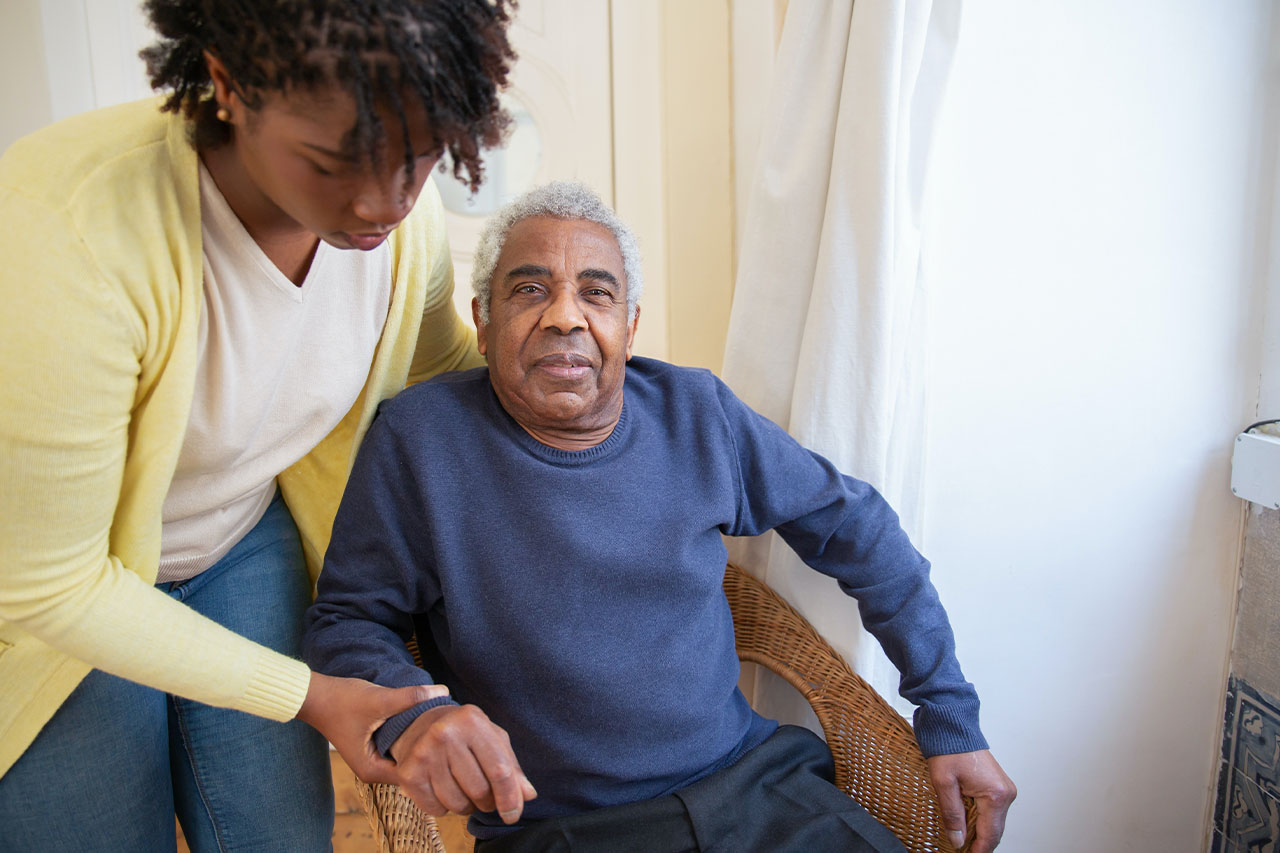Palliative Care vs Hospice Care
We’re frequently asked, “What’s the difference between Palliative Care vs Hospice Care?” If you or a loved one is facing a serious, life-limiting illness, both hospice and palliative care can be an important part of helping your pain and symptoms. But what’s the difference between the two?
Definition of Palliative Care and Hospice Care
Palliative care and hospice care are two terms that are often used interchangeably, but they have distinct differences. Palliative care is a holistic approach in providing relief from symptoms, pain, and stress for individuals with a serious illness. It aims to improve the quality of life and ensure the patient’s comfort. On the other hand, hospice care is a type of palliative care that provides comfort to individuals who have a life-limiting illness with a prognosis of less than six months. Hospice care is typically provided at home, but it may also be provided in a hospital or another type of facility. Both types of care are important in providing relief and comfort to individuals who are experiencing a serious illness.
Eligibility Requirements for Each Type of Care
When it comes to choosing the right type of care for yourself or a loved one, understanding the eligibility requirements can be crucial. Each type of care, whether it be assisted living, skilled nursing, or hospice, has its own specific set of guidelines for admission. These guidelines may include age restrictions, medical or cognitive conditions, financial qualifications, or other factors. It is important to carefully review the eligibility requirements and speak with a healthcare professional or admissions representative to ensure that you or your loved one meets the necessary criteria. Knowing the eligibility requirements can help make the process of choosing and accessing care smoother and less stressful.
How to Pay for Palliative Care and Hospice Care
Palliative care and hospice care can be important aspects of end-of-life care. However, these services can also be costly. It is important to know the different payment options available to help cover these expenses. Many insurance plans, including Medicare and Medicaid, may cover certain aspects of palliative and hospice care. Additionally, there are nonprofit organizations and foundations that provide financial assistance for those who qualify. It is also important to talk with healthcare providers and specialists about any available payment plans or financial resources. By exploring different options, it is possible to find a way to pay for palliative and hospice care without adding undue stress or financial burden during an already difficult time.
Differences Between In-Home and Facility-Based Palliative and Hospice Services
When it comes to receiving palliative and hospice care, patients and their families have the choice between choosing in-home or facility-based services. In-home services provide the benefit of being able to stay in the comfort of one’s own home, surrounded by family and familiar surroundings. On the other hand, facility-based services offer 24-hour care and medical support, as well as access to specialized equipment and treatments. Each option comes with its own set of challenges and considerations, such as the need for trained caregivers in the home or potential isolation in a facility. Ultimately, the decision between in-home and facility-based care depends on the specific needs and preferences of each individual patient and their loved ones.
How to Choose the Right Type of Care for Your Loved One
When it comes to choosing the right type of care for your loved one, there are several factors to consider. First, you must assess their specific needs and preferences. Understanding their medical conditions, their level of independence, and their personalities can help you narrow down the types of care that will suit them. Second, factor in the cost of the care and your loved one’s financial resources. Third, consider the long-term implications of the care—will it be sustainable in the future? Finally, it’s important to involve your loved one in the decision-making process so that they feel empowered and have a sense of control over their lives. With careful consideration and communication, you can make an informed decision that will provide your loved one with the best possible care.
Benefits of Getting Help from Hospice and Palliative Care Services
Making the decision to seek care for a loved one who is suffering from a serious illness can be overwhelming. However, understanding the differences between hospice and palliative care services can help you make the best decisions for your loved one’s health and well-being. While hospice services are typically reserved for those who have a limited life expectancy, palliative care services can be utilized throughout the course of an illness. Both types of services aim to improve the quality of life for patients and their families, by providing pain and symptom management, emotional support, and spiritual care. Hospice and palliative care services are available in a variety of settings, including hospitals, nursing homes, and in the patient’s own home. Seeking help from hospice and palliative care services can provide immense benefits to patients and their families, easing the burdens of illness and allowing for a more comfortable end-of-life experience.
In Summary…
There is much to consider when deciding between palliative and hospice care for a loved one. Although both provide valuable support, the needs of each patient might require different amounts and forms of assistance. Without professional advice, it can be difficult to determine what types of services will provide the most comfort, so it’s important to seek out the counsel of health care providers before making any decisions. Ultimately, the combination of palliative and hospice care allows patients to gain access to an even more comprehensive level of care by covering all their medical needs, helping families better manage emotions during difficult times, and providing comfort in the most efficient way possible. While every situation is unique and requires careful examination, for those individuals facing life’s final stages a combination of both palliative and hospice care can offer support that allows them to go through their final days with dignity.
We want our patients and their families to be informed when it comes to making a decision about the hospice care of a terminally ill patient. To learn more about our services or to schedule a free assessment, please contact us at 972.353.0800 or send us a message.






